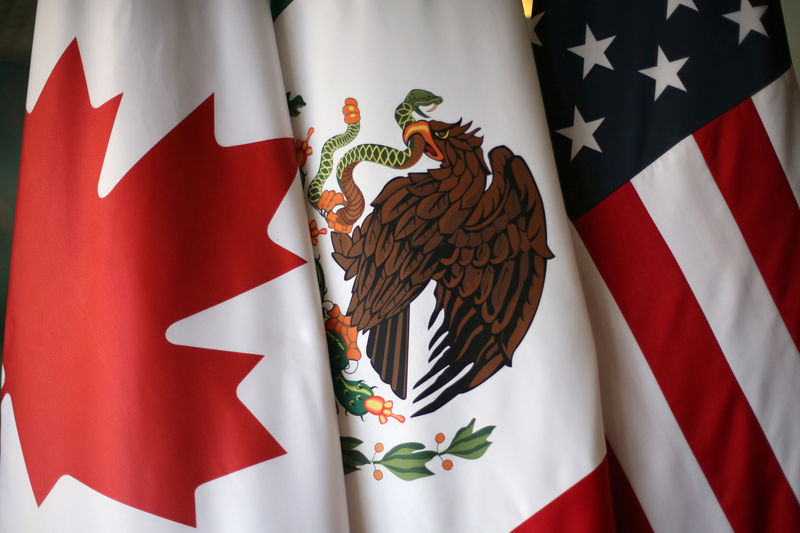WASHINGTON, Sept 19 (Reuters) - U.S. Chamber of Commerce President Tom Donohue said on Wednesday that the Trump administration could still avoid a full-blown global trade war that erodes business confidence if it seals a trilateral NAFTA trade deal and makes progress on European trade issues in the coming weeks.
"The single biggest threat facing the economy right now is the potential for a real trade war. I don't think we're there right now," Donohue told a breakfast organized by the Christian Science Monitor.
But if Trump puts in place all the tariffs on Chinese goods that he has threatened and China fully retaliates and talks over the North American Free Trade Agreement break down, a damaging trade war would be underway, Donohue said.
Talks to update NAFTA, which U.S. President Donald Trump says is unfair to the United States, have been bogged down amid disagreements between Canadian and U.S. negotiators. Trump announced a side deal with Mexico last month.
"If we can do something next week and get NAFTA done and we do it on a tripartite deal, if we make progress, by the way we are talking in Europe, if we can get that done...we can pretty quickly resolve some of this," Donohue said.
He added that trade differences with China will take longer to resolve, but he does not believe that the Trump administration wants its tariffs on Chinese goods to become permanent.
"No, I don't think the tariffs will be permanent," Donohue said, adding that this would "screw the economy" in ways similar to the 1930s Smoot-Hawley Tariff, referring to a protectionist law that raised thousands of U.S. tariffs and which many economists believe exacerbated the Depression.
"I don't believe the White House believes that's a positive thing to do."
He added that it was better for the United States and China to continue talking rather than resorting to trade retaliation.
He suggested the Trump administration should consider alternative pressure tactics other than tariffs, such as limiting specific Chinese exports to the United States and leveraging the help of other U.S. trading partners to help change China's policies.
Regarding NAFTA, Donohue added that he did not believe it was possible to do a U.S. Mexico-only trade deal, because Congress prefers a trilateral deal and has not granted authority for a bilateral deal.
"If Canada doesn't come into the deal there is no deal," Donohue said of NAFTA. "You can't do a deal with Mexico ... just because you had discussions with them. First of all Trade Promotion Authority for that is not there, so 435 members of the House and 100 members of the Senate would be free to edit the agreement."
